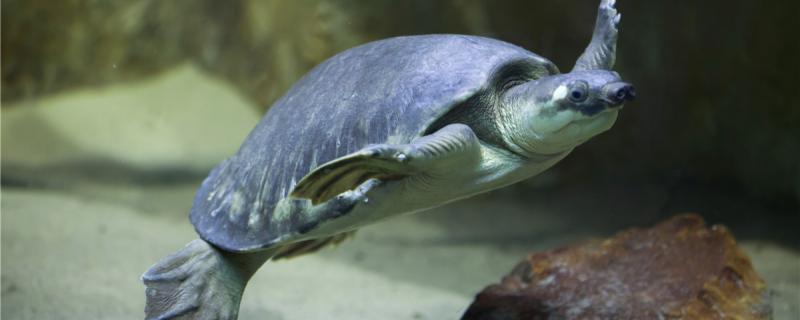 Is
Is The pig-nosed turtle is a freshwater turtle, and it is a highly aquatic freshwater turtle. They are native to areas such as Australia, New Guinea and Indonesia. And their main habitats in their native areas are deep ponds, swamps or rivers, lakes and other places, which are freshwater, so they also belong to freshwater turtles.
Pig-nosed turtles are classified as deep water turtles because most pig-nosed turtles are found in waters below 6 feet, and most of these waters are surrounded by dense forests. Because they are timid and afraid of being frightened, and they are afraid of strong light.
pig-nosed turtles 1. Water quality: pig-nosed turtles have high requirements for water quality. It's better to change water twice a week and ensure that the water quality is weakly alkaline. Keepers also need to regularly test the acidity and alkalinity of the water, and if it is acidic, they need to add coral sand to adjust the water quality. The water level of breeding pig-nosed turtles is deep, so the amount of water changed each time can be controlled at one sixth of the total amount of water.
2. Water temperature: The water temperature suitable for pig-nosed turtles is between 26-28 ℃. Too high or too low temperature will make them uncomfortable. If conditions permit, heating rods can be installed to ensure constant water temperature.
3. Feeding: The pig-nosed turtle has a mixed diet and is greedy for food. Adult pig-nosed turtles can be fed with more vegetables and fruits, a small amount of animal feed, once every 1-2 days, to ensure a balanced nutrition. Young pig-nosed turtles can be fed more animal feed, try not to feed turtle food, twice a day, to ensure adequate nutrition.